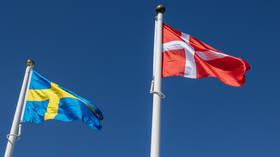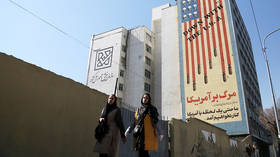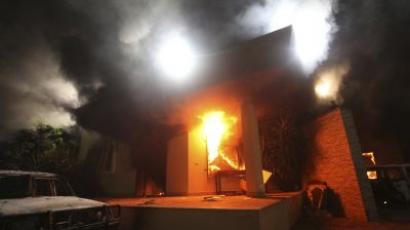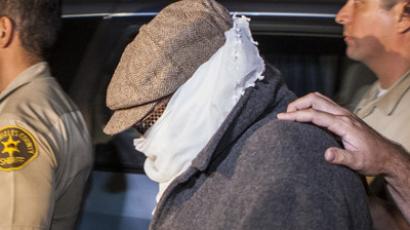Clinton and Obama's shock over Libya violence 'naive'
US President Barack Obama and Secretary of State Hillary Clinton have condemned the deadly attack on the US consulte in Libya, which killed Ambassador Chris Stevens and three other embassy workers.
The two leaders said that America liberated the country so it could form a new democracy. “It’s especially tragic that Chris Stevens died in Benghazi because it’s a city he helped to save. At the height of the Libyan revolution, Chris led our diplomatic post in Benghazi…he built partnerships with Libyan revolutionaries and helped them as they planned to build a new Libya,” Obama said in a statement. US Secretary of State Hillary Clinton also firmly denounced the attack: “How could this happen? How could this happen in a country we helped liberate, in a city we helped save from destruction?”But some believe the US shouldn’t be so surprised by the violence.It’s naïve to for the US to believe it can have normal diplomatic relations in Libya, which is unstable because of the 2011 NATO-led intervention, Patrick Henningsen, geopolitical analyst for current affairs website UK Column Patrick said in an interview with RT.Libya is divided because of NATO. The chaos of the intervention has given rise to warlords, militias, and raided weapon stocks that were formerly secured by the Gaddafi government, he said.Henningsen argues that the violent assault on the US consulate is simply blowback against Washington and London’s aggressive foreign policy. RT: These attacks happened in countries where Washington was directly involved in regime change. What does that say about the effect the revolts have had on the US?Patrick Henningsen: This is a very interesting development and what you can deduce from this is that Washington and America are still living in their own Western bubble where they believe they don’t have any chain of responsibility for the events that have happened to transform countries like Libya, and Egypt to a lesser degree. There was a military intervention that killed thousands and thousands of civilians. So this event could easily be more than just an Islamic anti-American protest. It could have something to do with Gaddafi loyalists that are still being rounded up, arrested, and extradited – particularly the recent extradition of Abdullah al-Senussi, a deal which the US brokered for Libya. RT: Are the new governments of Libya and Egypt too ill-prepared to protect diplomatic premises, or were these events just too unpredictable?PH: You really have to look at this in a mature way. For the US to bomb and basically destroy a country and assassinate its head of state on worldwide television, and then for diplomats to go in, those diplomats have to realize that they’re not innocent. They are parties in a major war crime. So they have to on guard for that. To think there’s going to be normal diplomatic relations in a country like Libya – that’s totally unstable as a result of NATO intervention – is a bit naïve by western pundits and politicians in Washington and London. No one is innocent anymore. This is the new paradigm of Western aggression that they have to accept as a reality. RT: Islamist groups have been on the rise since the dawn of the Arab Spring – why are their radical elements proving so difficult for these countries to contain?PH: Most of the radical Islamic elements in all of these countries are controlled by the West. The al-Qaeda factions are directed, controlled, and now funded openly – in the case of Syria – by Washington and London. So they have control of the radical elements. This is really an excellent divide and rule situation, to use this clash of civilizations – Islam vs. Christianity – it’s a great cover for a neo-colonial agenda and the technique of dividing countries into their respective compartments, compartmentalizing them, and then being able to rule over them, through the UN or NATO or other transnational bodies.RT: What do you expect Washington's next step to be? PH: This is a tragedy, our hearts go out to the council workers and Ambassador Stevens and his family. But look – the US called all the dead Libyans "collateral damage" when they were working to take over the country. You can look at this recent death as "collateral damage." This is still a part of the aggression. This is what’s called the blowback of Washington and London’s aggressive foreign policy. Ambassador Stevens and his staff are "collateral damage" of the western agenda to march forward and to radicalize parts of the countries and take over the Middle East in order to prepare for the eventual confrontation with Iran, with Israel by its side.RT: Why are the American diplomats paying this tragic price when the anger is supposedly directed at a film which has nothing to do with the government?PH: There’s more than meets the eye here. It’s not just about the film. This anti-Western, anti-American angst isn’t just about what this film was depicted as. This film will come and go. It will wash away. The real issue here is about the Western aggression – the violence and killing – from Afghanistan all the way to Libya. That is the big issue that people aren’t talking about. It’s not so much about a religion or clash of civilizations. It’s an anti-Imperialist angst that’s fueling this aggression towards America and some of Europe’s leading NATO countries. This is the price they will continue to pay. But the West will use this crisis as an opportunity to either balkanize these countries or introduce other military UN peace keeping forces, more small pockets of NATO troops. They’ll use this crisis as an opportunity as they always have done. So we need to look through the narrative, which is mainly a Western narrative. RT: Ambassador Christopher Stevens was a key figure in arranging ties with Libya's post-revolution interim government. Does his tragic death signal a deep divide between the new leaders and the people of Benghazi?PH: Libya was well divided before Ambassador Stevens set foot there. It was divided as a result of the NATO intervention. You have warlords and militias, raided weapon stocks that were formerly held by the Gaddafi government. So it’s absolute chaos. Meanwhile, amongst this chaos on the surface, the oil assets, the state utilities, the water assets, some of the agricultural assets, and some of the economic pockets have already been divided up by British, American, and French companies. They’ve divided the country and are selling off its assets for pennies on the dollar in order to pay off the IMF’s money injection they’ve put into Libya. The corporations will still profit from this chaos, which they’ve done very efficiently. And that’s not being talked about in the mainstream media.














